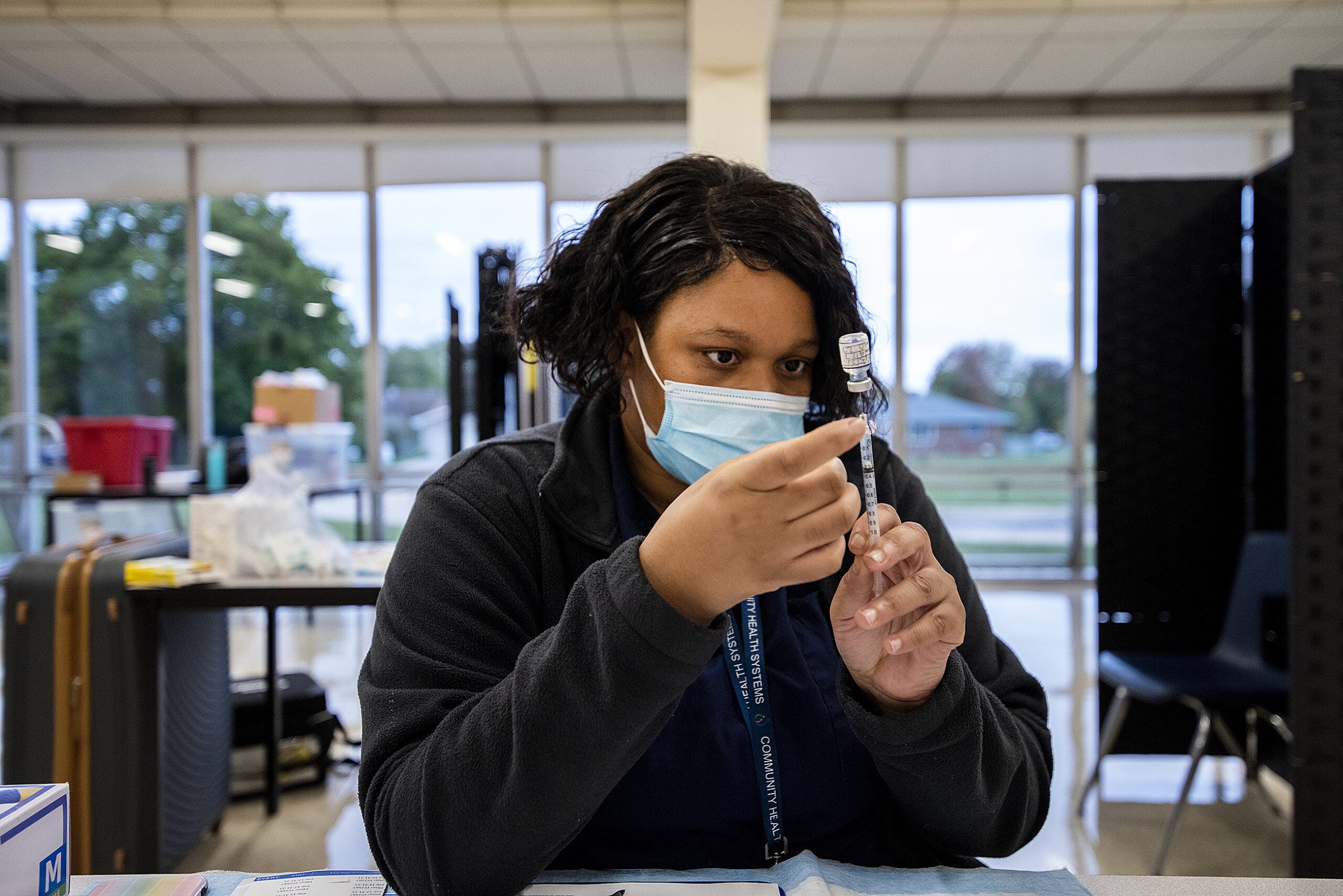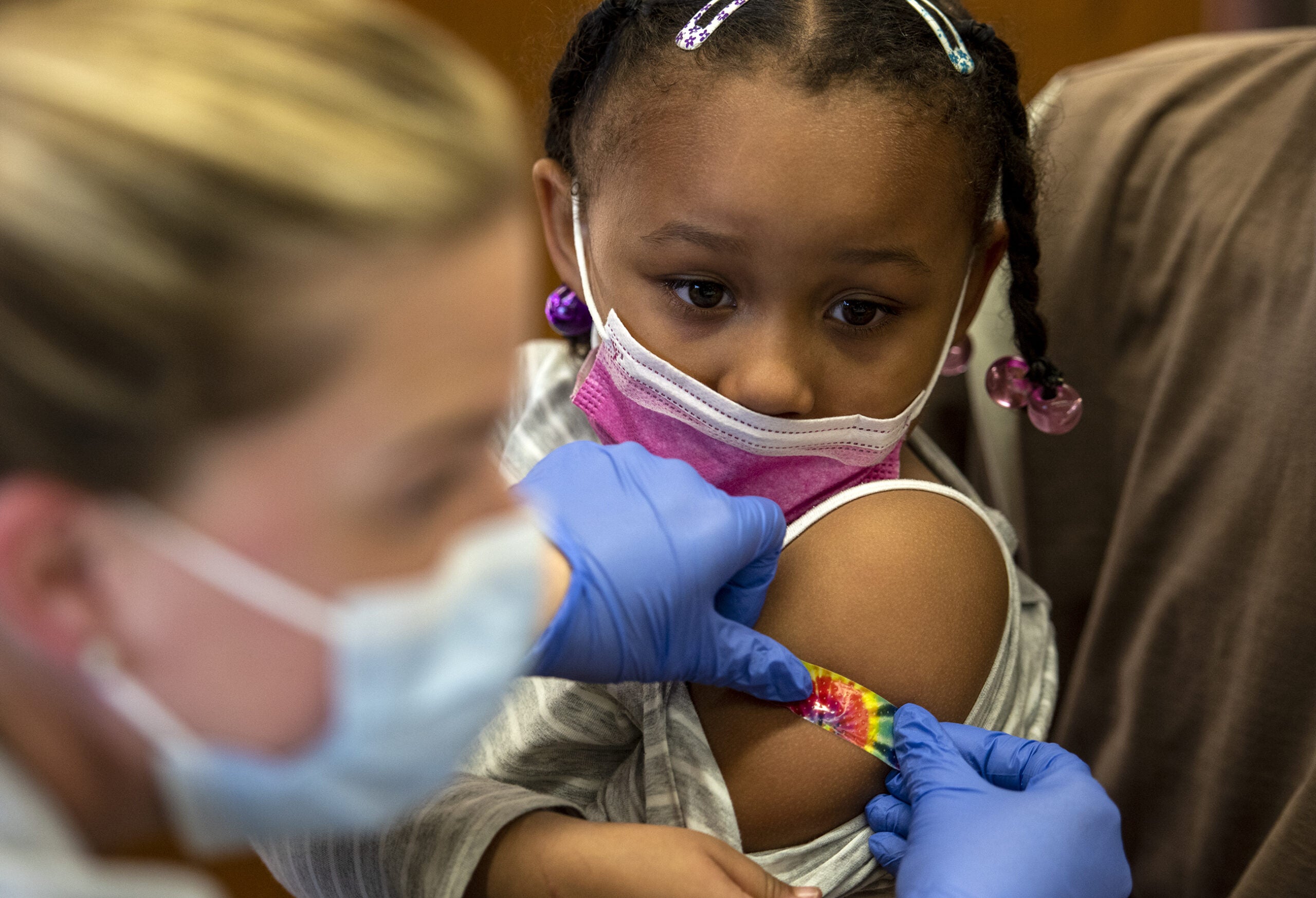A program focused on getting rural Wisconsinites vaccinated against COVID-19 has resulted in nearly 100,000 vaccinations, according to Marshfield Clinic.
The health system is using emails to reach patients with information about the vaccine. The clinic worked with the health technology company Virgin Pulse to create emails tailored to patients based on information they would be most likely to connect with, an executive said.
“We know individuals truly do value the recommendations, the thoughts and considerations of their health care providers,” said Meranda Eggebrecht, director of care management. “So they’re receiving that information directly from their health care providers.”
News with a little more humanity
WPR’s “Wisconsin Today” newsletter keeps you connected to the state you love without feeling overwhelmed. No paywall. No agenda. No corporate filter.
Marshfield Clinic serves more than 350,000 patients, mostly in the central and Northwoods part of the state, as well as Michigan’s Upper Peninsula. Its service area includes parts of Wisconsin with the state’s lowest vaccination rates, including Taylor and Clark counties. Survey data and vaccination rates reflect that hesitancy about getting the COVID-19 vaccine is typically higher in rural areas.
Eggebrecht said Marshfield Clinic’s outreach campaign opened the door for providers in the system to have one-on-one conversations with patients to address concerns and answer questions about the vaccine.
“And yes, it may take time,” she said. “But we know that individuals do have questions. They want to hear and understand, so they can make an informed decision.”
Wisconsin has experienced record high numbers of COVID-19 infections in the last week and hospital capacity was strained as the extremely contagious omicron variant of the virus spread. According to experts, that variant appears to be less likely than previous strains to lead to serious illness, and the risk is lower still for people whose vaccinations are up to date. According to state data, in December, unvaccinated Wisconsinites were about five times more likely to contract the virus, 11 times more likely to be hospitalized as a result of it and 13 times more likely to die from COVID-19.
Eggebrecht said Marshfield Clinic has delivered more than 175,000 vaccines, including many to vulnerable populations. Of those, 95,634 were administered in the system’s walk-in clinics promoted by its email outreach program.
In the early months of the vaccine rollout, when demand exceeded supply, the messages to patients were about vaccine eligibility and availability, said Ashley Dobbs, director of client services at Virgin Pulse.
“As a Marshfield Clinic Health System patient, COVID-19 vaccines are available to you,” read a sample email from the campaign sent after the vaccine was generally available to those 16 years old and up.
“More recently,” Dobbs said, “we’re able to exclude those people who already have gotten their vaccine and are really honing in on those who are more hesitant.”
A more recent email tells patients that “vaccination reduces chances of severe illness or death, especially as COVID-19 mutates” and offers the “top 3 reasons to get the vaccine now” with links to supporting information from the Centers for Disease Control and Prevention.
Eggebrecht said about 30 percent of patients receiving the emails opened them, compared to about 23 percent for most health care email communications.
Like other health systems, government agencies and coalitions, Marshfield Clinic has sponsored billboards, radio ads and other ways of promoting vaccination. Eggebrecht said efforts to connect with unvaccinated people throughout the state will continue well into 2022.
“We continue to look forward to see what we can do to continue to have those conversations, those discussions with individuals who maybe still are on the fence,” she said.
Editor’s note: This story has been updated to correct the name of Ashley Dobbs.
Wisconsin Public Radio, © Copyright 2026, Board of Regents of the University of Wisconsin System and Wisconsin Educational Communications Board.





